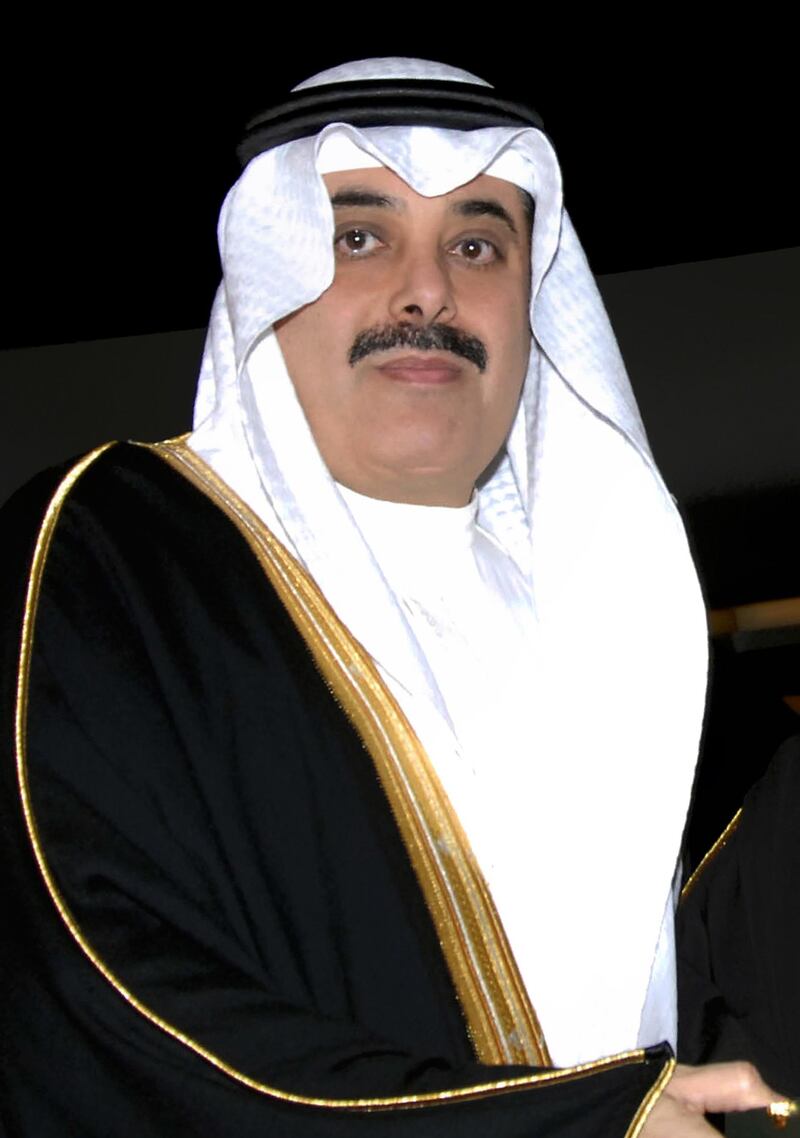A Cayman Islands court of appeal lifted an earlier hold on a US$9 billion (Dh33.05bn) claim against Maan al Sanea, a Saudi businessman, allowing the case to move forward after a year of delay.
Ahmad Hamad Al Gosaibi and Brothers (AHAB), a prominent Saudi family business, has sued Mr al Sanea in a number of courts around the world, accusing him of running a Ponzi scheme. Al Gosaibi accuses Mr al Sanea of funnelling billions of dollars into his own accounts and then arranging loans to cover his losses.
Mr al Sanea denies the charges and has argued that Saudi Arabia is the correct forum for the dispute to be resolved.
The dispute, one of the biggest fraud suits in Gulf history, reverberated in financial markets last year when both Al Gosaibi and Mr al Sanea's Saad Group defaulted on obligations. Several banks in the Gulf were affected by the defaults, which also prompted the industry to rethink its practice of lending to prominent families based on reputation alone, known as "name-lending".
Last year, a Cayman Island judge froze $9.2bn of Mr al Sanea's assets. However, in July a judge placed a hold on the case, ruling that the Cayman courts should wait for the progress of a committee established in Saudi Arabia to investigate the case.
This week's decision reversed the hold on the case, on the grounds the benefits of the stay do not "outweigh the disadvantages to the plaintiffs".
"There was no reason to expect the Saudi committee would reach a conclusion" on the claims, Sir John Chadwick wrote in his decision. "Nor was it possible to be confident that proceedings commenced in the Saudi courts would lead to a decision determinative of AHAB's claims against Mr al Sanea within any measurable period, if at all."
The court also reaffirmed that the "scales came down heavily in favour of the Cayman Islands as the appropriate forum" to decide the case. Most of Mr al Sanea's companies were registered in the Caribbean country.
Eric Lewis, the global legal co-ordinator for Al Gosaibi, welcomed the decision, saying the case "should not be compelled to go first to Saudi Arabia for the determination of preliminary issues".
Representatives for Mr al Sanea declined to comment.
The charges primarily stem from Mr al Sanea's role as the managing director of the Money Exchange, Al Gosaibi's remittance arm. The company "came to operate effectively as an investment bank and through which Mr al Sanea was able to borrow and then misappropriate amounts in the order of magnitude of $9.2bn", the suit alleges.
It also claims Mr al Sanea forged the signature of members of the al Gosaibi family to secure loans to cover his actions. A large shareholder in HSBC, his personal accounts were frozen last year by the Saudi Arabian monetary agency as the case unravelled. The Saad Group has reportedly sold off several of its assets, including a stake in the UK construction firm Berkeley Group.
As the dispute unfolded, several banks filed lawsuits in New York, London, the Cayman Islands, Bahrain and the UAE against both Al Gosaibi and the Saad Group, hoping to recover money loaned to the companies.
The UAE institutions Mashreqbank, Abu Dhabi Commercial Bank (ADCB), Abu Dhabi Islamic Bank and Emirates NBD are among creditors owed an estimated $20bn.
The suits allege that Mr al Sanea transferred funds to Awal Bank, a Bahraini subsidiary of the Saad Group.
The bank was put into administration last year by the Bahrain government. In October, Awal filed for Chapter 11 protection in the US, naming ADCB among its largest creditors.





